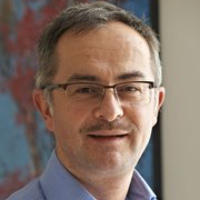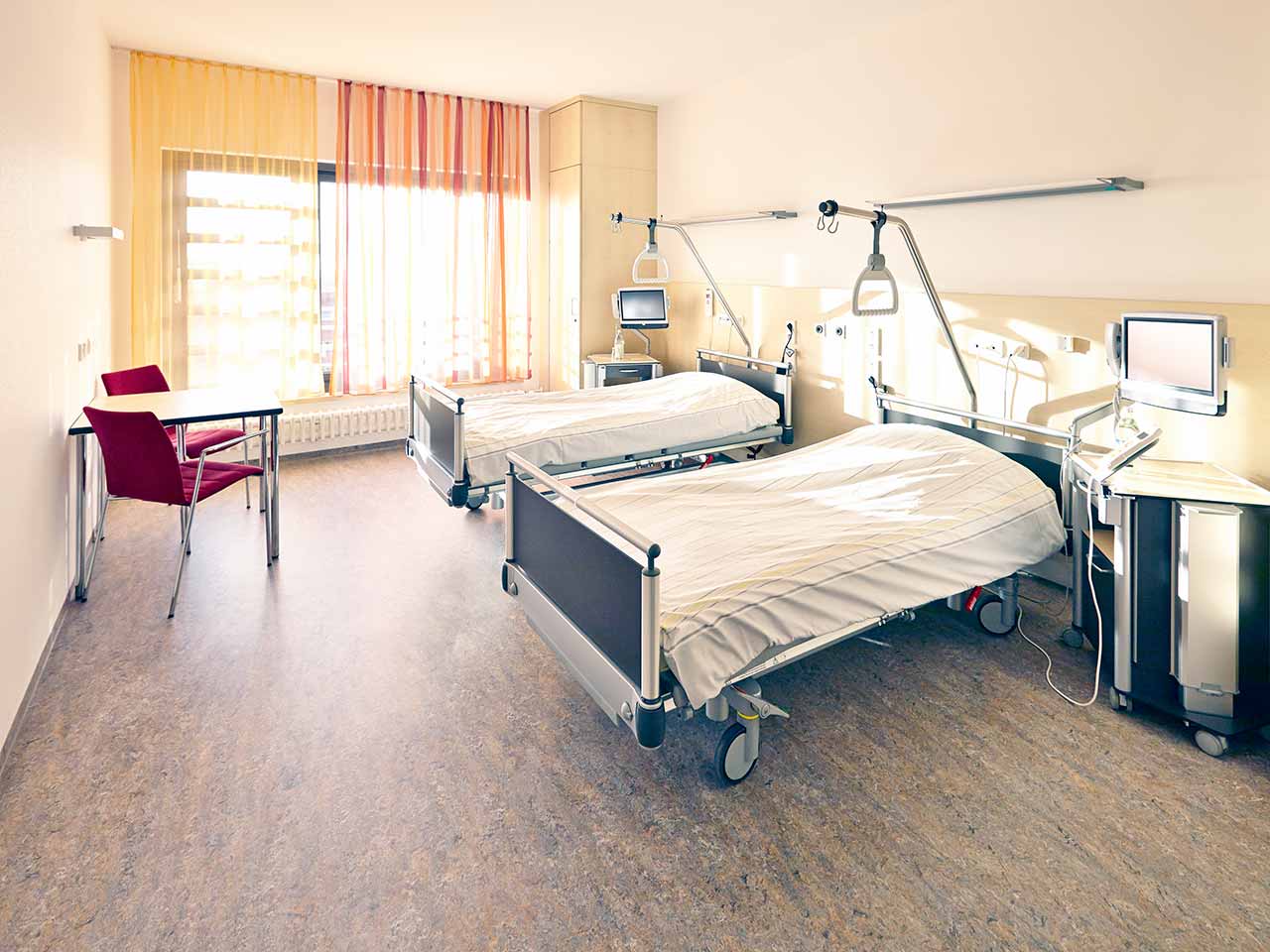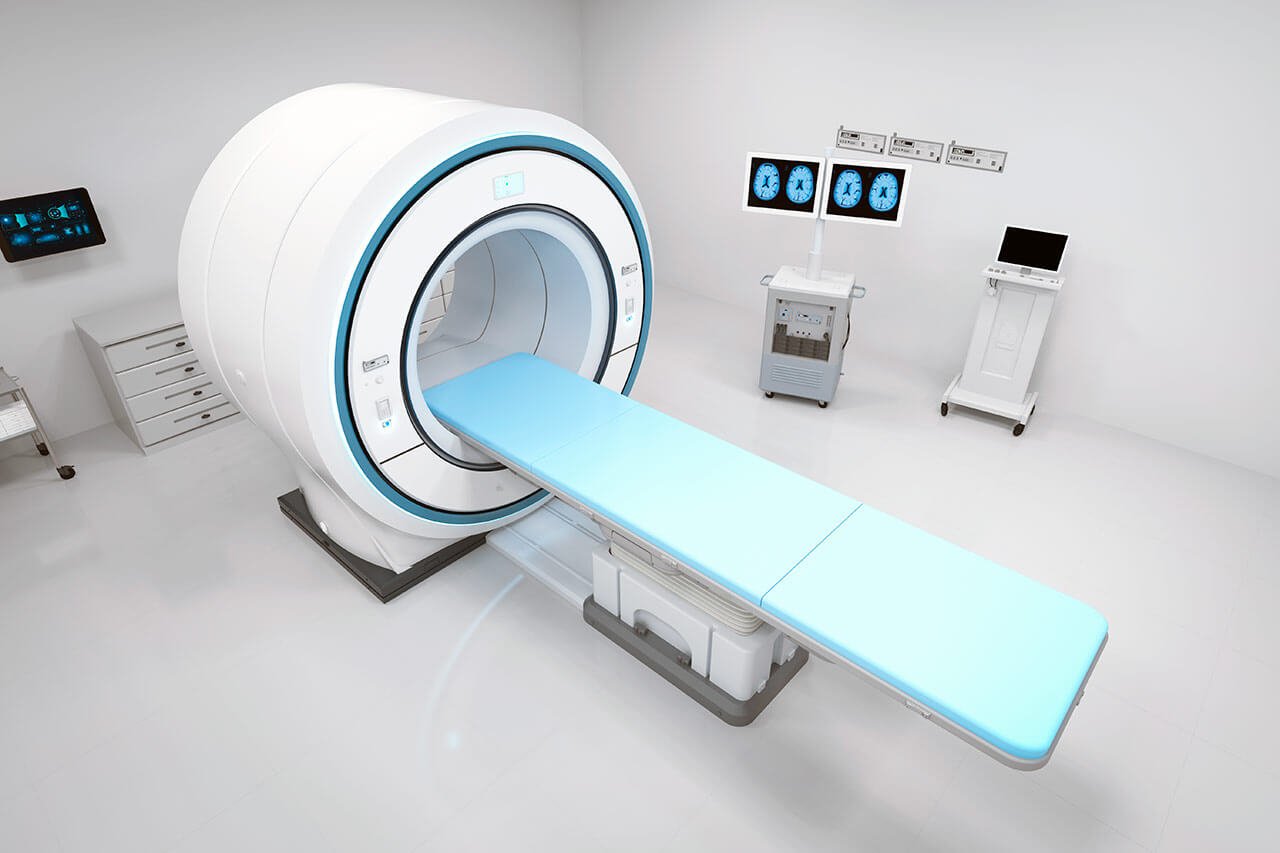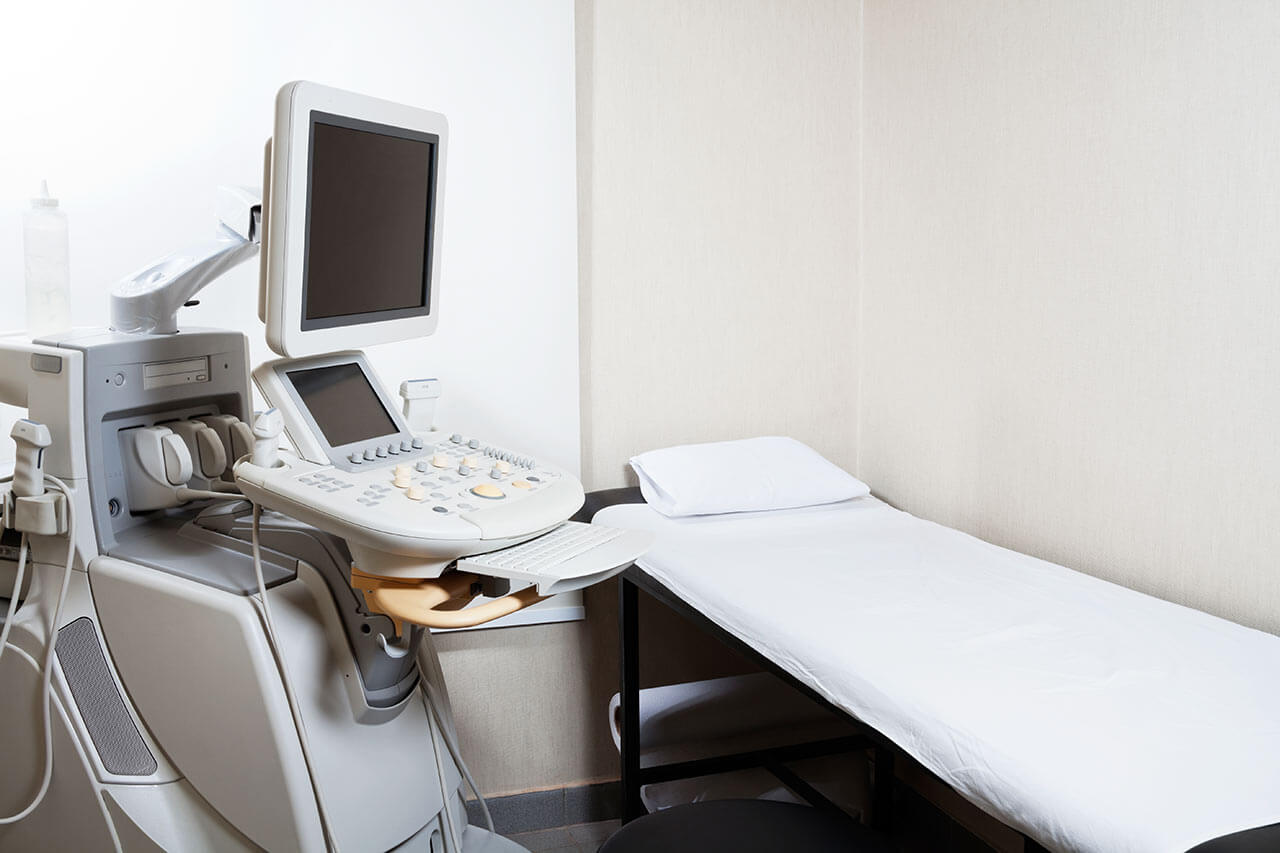
The program includes:
- Initial presentation in the clinic
- clinical history taking
- review of medical records
- physical examination
- laboratory tests:
- complete blood count
- general urine analysis
- biochemical analysis of blood
- inflammation markers (CRP, ESR)
- blood coagulation analysis (aPTT, PT, INR)
- hormone test (estradiol, progesterone, prolactin, DHEA-s, FSH, LH)
- gynecological examination.
- ultrasound examination: pelvis, abdomen, thyroid gland, breasts
- nursing services
- consultation of related specialists
- treatment by chief physician and all leading experts
- explanation of individual treatment plan
Required documents
- Medical records
Service
You may also book:
 BookingHealth Price from:
BookingHealth Price from:
About the department
The Department of Pediatric Endocrinology at the University Hospital Ulm provides the full range of medical services for young patients with endocrine disorders. The department's team of doctors carries out comprehensive diagnostics and effective treatment for diabetes mellitus, all types of obesity, growth disorders, thyroid pathologies, etc. The department also offers competent medical care for puberty disorders in children. The health facility has an in-house Biochemical and Molecular Genetic Laboratory where hormone tests and other tests are performed. The department is certified according to the standards of the German Society for Pediatric Endocrinology and Diabetology (DGKED) and has been awarded by the German Association for the Study of Obesity (DAG) with a quality certificate for its outstanding achievements in this field. In addition, the department is part of the European Reference Network on Rare Endocrine Conditions (Endo-ERN). In most cases, young patients receive medical care on an outpatient basis without a mandatory hospital stay. The necessary technical resources and professional medical staff allow the department to provide patients with effective treatment. Special attention is paid to the comfort of young patients, and therefore the medical facility has play areas for children.
The Head Physician of the department is Prof. Dr. med. Martin Wabitsch. The doctor studied at the universities in Berlin, Ulm, Nice, and Baltimore. He has a successful clinical practice and is engaged in research activities. The specialist received many prestigious awards, including research prizes from the German Association for the Study of Obesity (DAG), the European Society for Pediatric Endocrinology (ESPE), and the German Diabetes Society (DDG).
The key focus of the department's clinical activities is the treatment of diabetes mellitus in children. Most commonly, young patients are diagnosed with type 1 diabetes mellitus, which is a chronic disease characterized by increased blood glucose levels (hyperglycemia) due to insulin deficiency resulting from autoimmune destruction of pancreatic beta cells. The main manifestations of type 1 diabetes mellitus in a child are frequent urination and thirst, weight loss, fatigue, weakness, visual impairment, nausea, and vomiting. To make a diagnosis, the department's doctors carry out blood tests for glucose and glycosylated hemoglobin, as well as antibody tests for insulin, pancreatic beta cells, glutamate decarboxylase, and zinc transporter 8. The child is also examined by cardiologists, nephrologists, and ophthalmologists because the pathology is associated with the risk of the development of heart and kidney conditions and may provoke visual impairment. The most effective treatment method for type 1 diabetes mellitus in children is insulin therapy. The department's specialists prefer pump insulin therapy. The required insulin dose is continuously injected under the skin of the child using a special electronic device (pump) based on individual settings prescribed by the physician. The insulin pump is compact and, therefore, inconspicuous under clothing. It is an excellent alternative to daily classical insulin injections. Dietary control is also an integral part of the therapeutic process. It is necessary to exclude high carbohydrate foods from the diet as much as possible. The specialists also recommend the child to go in for sports in order to control weight and maintain normal tissue sensitivity to insulin.
The department's doctors have exceptional experience in the treatment of young patients with obesity. In most cases, excess body weight is caused by improper nutrition and a sedentary lifestyle, but there are also situations where obesity results from hormonal imbalances or genetic mutations. Before starting treatment, the department's endocrinologists determine the cause of obesity. Diet therapy and physical activity come to the fore if the child does not have hormonal imbalances or genetic mutations. Psychologists are also involved in the therapeutic process. They carry out behavioral therapy and work on the psychological aspects of obesity. In collaboration with highly specialized experts, the department's doctors also treat secondary diseases caused by obesity in children. These include arterial hypertension, lipid disorders (for example, hypertriglyceridemia), diabetes mellitus, puberty disorders, digestive diseases, and musculoskeletal pathologies. The department is certified by the German Association for the Study of Obesity (DAG) and the Working Group of Obesity in Childhood and Adolescence (AGA) as a specialized medical facility for the treatment of obesity in children. The department has been treating young patients with obesity for more than 25 years, so the specialists have highly effective treatment regimens that are adapted to the individual needs of the child. In addition, the department is one of the few hospitals in Europe that successfully performs replacement therapy using a recombinant analog of human leptin (metreleptin) for treating obesity and lipodystrophies caused by leptin gene mutations.
The department's therapeutic options are complemented by the treatment of lipodystrophy (adipose degeneration). This rare condition causes complete or partial loss of subcutaneous adipose tissue, as well as its improper distribution. There are various types of lipodystrophy, including genetic and acquired ones, as well as generalized or partial forms. The generalized form affects the entire body of the child, while the partial form only affects certain areas. Due to the rarity of the pathology and its diverse symptoms, it is often diagnosed in its advanced stages. During the diagnosis, a phenotype blood test and genetic tests play a key role. The department's doctors also regularly carry out additional diagnostic examinations to detect secondary pathologies (hormonal imbalances, metabolic disorders, and diabetes mellitus are the most common). The main treatment method for young patients with lipodystrophy is diet therapy. If laboratory tests reveal low leptin levels in the blood, the specialists conduct replacement therapy with metreleptin, a recombinant analog of human leptin.
The department's range of medical services includes the following:
- Diagnostics and treatment of diabetes mellitus
- Diagnostics and treatment of obesity
- Diagnostics and treatment of lipodystrophy
- Diagnostics and treatment of thyroid diseases
- Diagnostics and treatment of parathyroid diseases
- Diagnostics and treatment of adrenal diseases
- Diagnostics and treatment of gonadal (sex gland) disorders
- Diagnostics and treatment of growth disorders: dwarfism and gigantism
- Diagnostics and treatment of weight disorders caused by hormonal pathologies
- Diagnostics and treatment of puberty disorders
- Diagnostics and treatment of bone metabolism disorders
- Diagnostics and treatment of endocrine diseases after cancer in childhood and adolescence
- Diagnostics and treatment of hirsutism
- Diagnostics and treatment of disorders of water and electrolyte metabolism
- Diagnostics and treatment of disorders of calcium and phosphorus metabolism
- Diagnostics and treatment of diseases of the testicles and male reproductive system
- Diagnostics and treatment of diseases of the ovaries, breast, and female reproductive system
- Diagnostics and treatment of endocrine disorders in syndromal and complex diseases
- Diagnostics and treatment of polyendocrinopathy
- Diagnostics and treatment of other endocrine diseases in children and adolescents
Curriculum vitae
Higher Education and Professional Career
- 1982 - 1989 Medical studies, Universities of Berlin, Ulm, Nice, and Baltimore (Johns Hopkins University).
- 1990 - 1996 Professional training in Pediatrics.
- 1991 Thesis defense in Experimental Medicine, summa cum laude.
- 1993 Research Fellow in the European Society for Pediatric Endocrinology (ESPE) program, Hagedorn Research Institute, Gentofte, Denmark.
- 1997 Intern and Research Fellow, Department of Pediatric Endocrinology, University Hospital Ulm.
- 1997 Assistant Professor for Pediatrics, University of Ulm.
- 2003 Board certification in Diabetology, German Diabetes Association (DDG).
- 2004 Associate Professor for Pediatrics.
- Since 2004 Head Physician, Department of Pediatric Endocrinology, University Hospital Ulm.
- 2004 C3 Professor for Pediatric Dietetics, Technical University of Munich.
Academic Positions
- 2007 - 2012 Spokesperson, then President of the German Society for Pediatric Endocrinology and Diabetology (APE/DGKED e.V.).
- Since 2011 Chairman of the Section for the Research of Cardiometabolic Disorders, Boehringer Ingelheim Ulm University BioCentre.
- 2012 - 2015 President of the German Association for the Study of Obesity.
- 2012 - 2019 Coordinator, "Young people with morbid obesity" consortium of the Federal Ministry of Education and Research (BMBF).
- 2015 - 2018 Board Member of the European Society for Pediatric Endocrinology (ESPE) Science School.
- Since 2017 Chairman of the Center for Rare Endocrine Diseases (ZSEE), University Hospital Ulm.
Clinical Interests
- Growth and weight regulation (energy homeostasis) in children and adolescents.
- Genetics, epigenetics, and pathophysiology of endocrine diseases.
- Insulin resistance and metabolic syndrome.
- New approaches to the treatment of type 1 diabetes mellitus in children and adolescents.
- Innovative individualized treatment methods for obesity and diabetes mellitus.
Research Interests
- Regulation of proliferation and differentiation of human mesenchymal stem cells (hMADS).
- Metabolism and endocrine function of human adipocytes.
- Energy metabolism of human adipocytes (WAT and BAT).
- Functional characterization of pathological types of human leptin.
Prizes, Awards, and Honors
- 1993 Research Fellowship of the European Society for Pediatric Endocrinology (ESPE).
- 1995 Research Prize from the German Association for the Study of Obesity (DAG).
- 1997 Research Prize from the European Association for the Study of Obesity (EASO).
- 1998 Research Prize from the European Society for Pediatric Endocrinology (ESPE).
- 2002 Research Prize from the German Diabetes Society (DDG).
- 2008 Research Prize from the City of Ulm.
- 2013 and 2014 Research Prize of the European Society for Pediatric Endocrinology (ESPE) for research on hormonal disorders in children.
- 2020 Prize and Medal for Excellence in Obesity Research from the German Association for the Study of Obesity (DAG).
Photo of the doctor: (c) Universitätsklinikum Ulm
About hospital
The University Hospital Ulm is an advanced medical complex that provides patients with high-class medical care using the very latest scientific achievements. The medical facility has been performing successful clinical activities for more than 40 years and has long earned an excellent reputation throughout Europe. The hospital regularly demonstrates high treatment success rates, takes an active part in the training of medical students, and works tirelessly on promising research projects.
The university hospital consists of 29 specialized departments and 16 scientific institutes, where more than 7,000 highly qualified employees work for the benefit of their patients. More than 55,000 inpatients and about 300,000 outpatients are treated here every year. The hospital has 1,274 beds. The medical team of the hospital is focused on providing personalized medical services using the most modern and sparing diagnostic and treatment methods.
The University Hospital Ulm is the largest medical complex in the region, and practically all areas of modern medicine are represented here. Transplantology and oncology are among the priority areas of clinical activity in the medical facility. The hospital holds leading positions in the world in bone marrow transplantation. In addition, the hospital has advanced experience in cancer treatment. The Comprehensive Cancer Center is recognized as the leading facility of this kind in the country, and it is certified by the German Cancer Society (DKG). It provides effective treatment for various types of cancer. The center also offers innovative CAR T-cell therapy. In addition, the Cancer Center is actively engaged in research activities to improve available treatment methods and develop innovative therapeutic techniques to fight cancer.
Along with the use of advanced technologies, doctors show respect, understanding, and a humane attitude toward the patient. The medical team includes competent psychologists, who are always ready to provide assistance and support to the patients and their families during the therapeutic process.
Photo: (с) depositphotos
Accommodation in hospital
Patients rooms
The patients of the University Hospital Ulm live in comfortable single and double rooms with a modern design and light colors. All patient rooms have an ensuite bathroom with a toilet and a shower. The patient room furnishings include a comfortable automatically adjustable bed, a bedside table, a wardrobe, a table and chairs, a telephone, a radio, and a TV. Wi-Fi access is also available in patient rooms.
The hospital also offers enhanced-comfort rooms, which additionally have a safe, a refrigerator, and upholstered furniture. The bathroom in the enhanced-comfort room has changeable towels, a cosmetic mirror, a hairdryer, and toiletries.
Meals and Menus
Patients and their accompanying person are offered three meals a day: breakfast, lunch, and dinner. The patient and accompanying person have a choice of three menus every day, including a vegetarian menu. Patients staying in the enhanced-comfort rooms are also offered light snacks, fruits, desserts, and hot and cold drinks in the comfortable lounge area.
If, for some reason, you do not eat all the foods, you will be offered an individual menu. Please inform the medical staff about your dietary preferences prior to treatment.
Further details
Standard rooms include:
![]() Shower
Shower
![]() Toilet
Toilet
![]() Wi-Fi
Wi-Fi
![]() TV
TV
Religion
The hospital has a chapel where Catholic and Protestant services are held weekly. The services are also broadcast on the internal television channel of the hospital. The chapel is open 24 hours a day for visits and prayers.
The services of other religious representatives are available upon request.
Accompanying person
Your accompanying person may stay with you in your patient room or at the hotel of your choice during the inpatient program.
Hotel
You may stay at the hotel of your choice during the outpatient program. Our managers will support you for selecting the best option.






